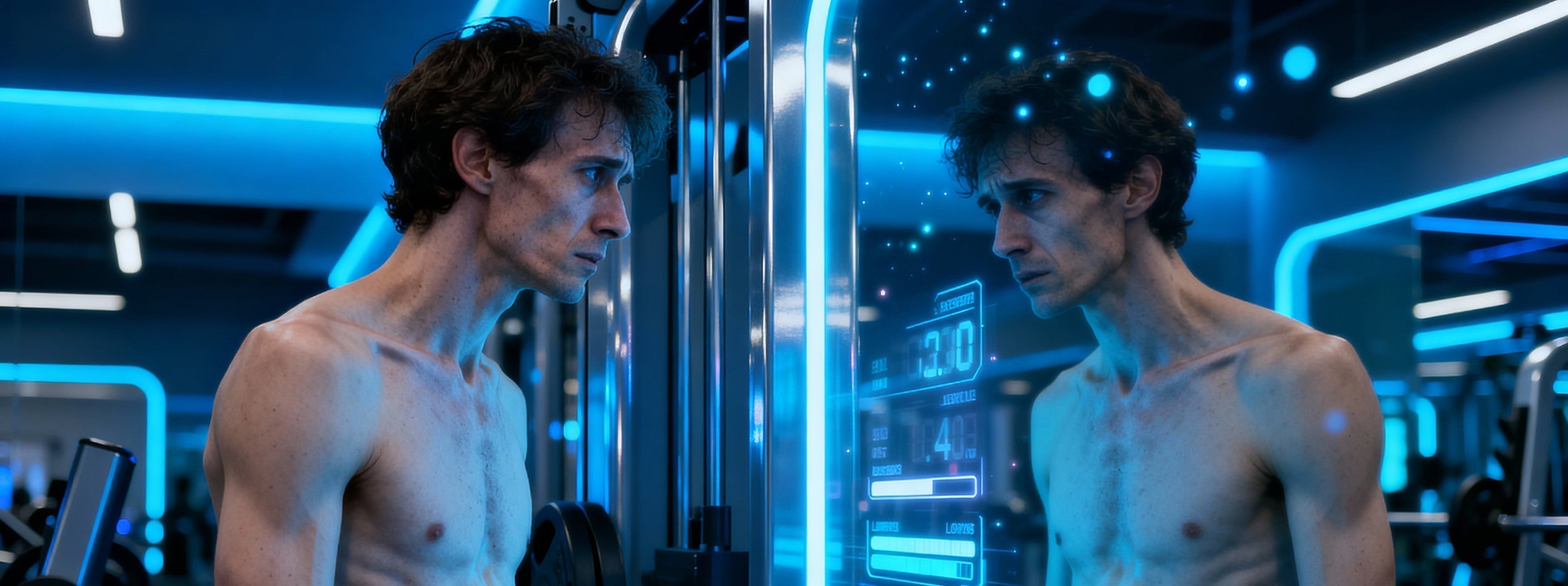This is why your workout results suck...

You’re putting in the work—lifting, sweating, pushing yourself—but the mirror doesn’t lie. Your muscles aren’t popping like they used to. Recovery takes longer. Gains feel slower. *
The frustrating truth? Hormones naturally change as early as your mid-30s, and that can make results harder to come by. *
Hormones That Built You Are Dropping*
Testosterone and growth hormone (GH) play key roles in muscle, fat, and recovery—but after your 30s, these hormones naturally begin to shift. *
Testosterone drops roughly 1% per year after age 30 [3]. That doesn’t sound like much, but by your 40s and 50s, that steady decline adds up. * Many men in their late 30s already start noticing differences in energy, drive, and recovery—even if they’re still training consistently. *
GH is even more dramatic: secretion falls about 15% per decade after your third decade of life [2]. By the time you’re in your mid-40s, your recovery power is significantly reduced compared to your 20s. * The pumps that once came easy start to fade, and soreness lingers longer than it used to. *
Insulin-like growth factor-1 (IGF-1), which works alongside GH to support lean muscle, also changes with age [1]. Combined with GH decline, this shift makes it tougher to add or maintain muscle, burn fat, and bounce back quickly from hard workouts. *
The Real-World Impact
You don’t need to wait until you’re 60 or 80 to feel the difference. A man in his late 30s or 40s often experiences: *
-
Muscles taking days longer to recover*
-
More effort required to maintain lean tissue*
-
Fat can accumulate around the midsection, even with consistent training and nutrition*
-
Workouts feeling harder despite the same—or even greater—effort*
That’s not hype—it’s biology. And it’s why the same program that built your physique at 25 barely scratches the surface now. *
3 Quick Ways to Fight Back
- Strength Training with Smart Recovery – Keep lifting heavy, but respect recovery windows. Muscles grow during rest, not just in the gym. Overtraining only makes hormonal shifts hit harder. *
- Prioritize Sleep – GH pulses occur mostly during deep sleep. Cut corners on sleep and you’re cutting off your body’s natural recovery system [2]. *
- Support Your Biology – Solid nutrition, consistent training, and clinically studied ingredients like those in BioPro+® can help support metabolism, energy, and workout recovery, giving your body the resources to make gains from the effort you’re already putting in.*
Facing Facts
Declining testosterone and GH aren’t excuses—they’re reality. But understanding what’s happening and adjusting your strategy means you can still get results. *
Workouts may feel different after 35, but with smart recovery, quality sleep, and the right support, you can keep building strength, maintaining muscle, and staying in the game. *
*These statements have not been evaluated by the Food and Drug Administration. This product is not intended to diagnose, treat, cure, or prevent any disease.
Works Cited
[1] Bian, Ailin et al. “Association between sarcopenia and levels of growth hormone and insulin-like growth factor-1 in the elderly.” BMC Musculoskeletal Disorders vol. 21,1 214. 7 Apr. 2020, doi:10.1186/s12891-020-03236-y
[2] Garcia, Jose M, et al. “Growth Hormone in Aging.” Endotext, edited by Kenneth R Feingold et al., MDText.com, Inc., 7 October 2019. https://www.ncbi.nlm.nih.gov/books/NBK279163/
[3] Cheng, Haoyang et al. “Age-related testosterone decline: mechanisms and intervention strategies.” Reproductive Biology and Endocrinology: RB&E vol. 22,1 144. 14 Nov. 2024, doi:10.1186/s12958-024-01316-5




